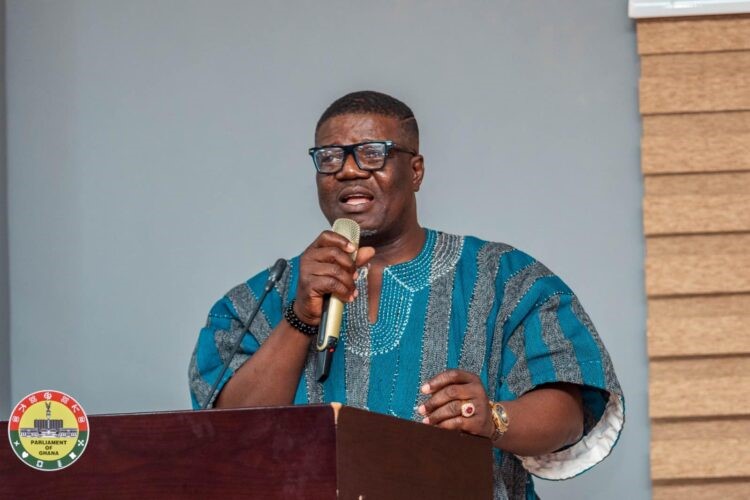By Leo Nelson
Legal education is the bedrock of a nation’s civic and democratic foundation, shaping not only legal practitioners but the entire fabric of society’s interactions and governance.
The current landscape of legal education in Ghana, however, presents a critical challenge: limited access restricts the aspirations of many aspiring legal professionals despite the increasing demand for legal expertise.
In response to this pressing issue, Hon. Rockson-Nelson Etse Dafeamekpor, distinguished Member of Parliament for South Dayi and majority chief whip, has issued a resounding call for a comprehensive overhaul of Ghana’s legal education system.
Emphasizing the paramount importance of democratizing legal education, Hon. Dafeamekpor asserts that such reforms are not just timely but imperative for fostering national development and enhancing justice delivery.
“Accessible legal education is vital for citizens to fully exercise their civic rights, empowering individuals in various roles to understand and apply laws effectively,” Hon. Dafeamekpor articulated.
Highlighting the pivotal role of legal education as the cornerstone of societal governance, he underscored its facets, including structured coursework, practical legal experience, and rigorous certification processes essential for legal practitioners.
In a reflective examination of Ghana’s legal history, Hon. Dafeamekpor traced the colonial origins of the country’s legal framework, characterized by a blend of customary law and English common law.
Following independence, Ghana sought to localized legal education, culminating in the establishment of the General Legal Council and the groundbreaking Ghana School of Law, the inaugural institution of its kind in Sub-Saharan Africa.
Despite these advancements, Hon. Dafeamekpor expressed concerns over the current exclusivity of professional legal education, noting the disparity between graduates produced and available spaces at the Ghana School of Law.
Addressing criticisms of potential dilution of legal quality or oversaturation of the legal profession, he refuted such notions, asserting the necessity of adapting legal education to align with Ghana’s evolving societal demands and economic progress.
Proposing legislative reforms to broaden access to professional legal education, Hon. Dafeamekpor endorsed a model enabling accredited university law faculties to provide professional law courses under the oversight of the General Legal Council, thereby expanding legal training capacity while upholding educational standards.
Advocating for a progressive legal regime attuned to contemporary needs, he urged the empowerment of public universities offering LLB programs to deliver professional legal education, thereby democratizing access without compromising quality.
Upholding the view that legal education is a fundamental right, Hon. Dafeamekpor asserts that all qualified individuals should have equitable opportunities for legal training, transcending antiquated barriers obstructing the realization of aspirations in a rapidly advancing society.
In conclusion, Hon. Dafeamekpor’s unwavering stance advocates for legislative enhancements to democratize legal education, bridging the gap between legal professionals and citizens while fostering national development, accountability, and adherence to the rule of law.


